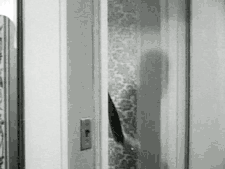Dave
Staff member
Kinda off-topic: The Dresden Files are some of the best books I've read.
On-topic:
Magic to me really depends on the world and whether or not it makes sense in context. For example, the swallowing of metals and "burning" them makes no sense in any context other then the Mistborn trilogy, which is excellent. At the same time, the High/Low magic of the Riftwar Saga would make no sense in Mistborn but makes perfect sense in Midkemia.
The stories I write tend to a more Nature/Scientific bent where you gather the power from several sources yet cause/effect still apply. Someone teleports there's a *bamf!* sound as the air is displaced. Large fire spells will suck the air out of enclosed spaces, etc. The more magic you use the better and more focused at it you become and the more power you are able to weild due to a sort of resistance you build up.
I do get what Pez is saying and it intrigues me. I think it could be successfully written but would be difficult to do and keep it so that it's NOT Deus ex Machina. Magic in that case could be that new powers could only be discovered in cases of great duress.
But one thing I've always had an issue with is that the concept of magic has never been used the way it would have in reality. Let's look at it from a strictly technological standpoint.
Almost all technology has been brought about to fill a perceived need of some sort. Eli Whitney invented the cotton gin to help in the separation of seeds from cotton fiber. Because of this, the South prospered. But what if magic had been around? No mechanical cotton gin would have been invented. Instead, a wizard would have used magic to do the separating, maybe passing on the technique, maybe not. Others would have duplicated the feat once they knew it could be done. For that matter, would they even have needed to grow cotton? With transmutational magic, wouldn't it be feasable to turn refuse into fibers or even food - gross though that may sound?
The problem with most magic is that we are limited by our imaginations where as in a "real" situation we would be driven by need, which is the mother of all invention.
I wonder how businesses would thrive from magic as they do with technology. Would corporitization even be possible in a magical world? It's possible to patent technology so others can't just do it, but would they be able to patent certain spells/effects? Interesting.
On-topic:
Magic to me really depends on the world and whether or not it makes sense in context. For example, the swallowing of metals and "burning" them makes no sense in any context other then the Mistborn trilogy, which is excellent. At the same time, the High/Low magic of the Riftwar Saga would make no sense in Mistborn but makes perfect sense in Midkemia.
The stories I write tend to a more Nature/Scientific bent where you gather the power from several sources yet cause/effect still apply. Someone teleports there's a *bamf!* sound as the air is displaced. Large fire spells will suck the air out of enclosed spaces, etc. The more magic you use the better and more focused at it you become and the more power you are able to weild due to a sort of resistance you build up.
I do get what Pez is saying and it intrigues me. I think it could be successfully written but would be difficult to do and keep it so that it's NOT Deus ex Machina. Magic in that case could be that new powers could only be discovered in cases of great duress.
But one thing I've always had an issue with is that the concept of magic has never been used the way it would have in reality. Let's look at it from a strictly technological standpoint.
Almost all technology has been brought about to fill a perceived need of some sort. Eli Whitney invented the cotton gin to help in the separation of seeds from cotton fiber. Because of this, the South prospered. But what if magic had been around? No mechanical cotton gin would have been invented. Instead, a wizard would have used magic to do the separating, maybe passing on the technique, maybe not. Others would have duplicated the feat once they knew it could be done. For that matter, would they even have needed to grow cotton? With transmutational magic, wouldn't it be feasable to turn refuse into fibers or even food - gross though that may sound?
The problem with most magic is that we are limited by our imaginations where as in a "real" situation we would be driven by need, which is the mother of all invention.
I wonder how businesses would thrive from magic as they do with technology. Would corporitization even be possible in a magical world? It's possible to patent technology so others can't just do it, but would they be able to patent certain spells/effects? Interesting.



